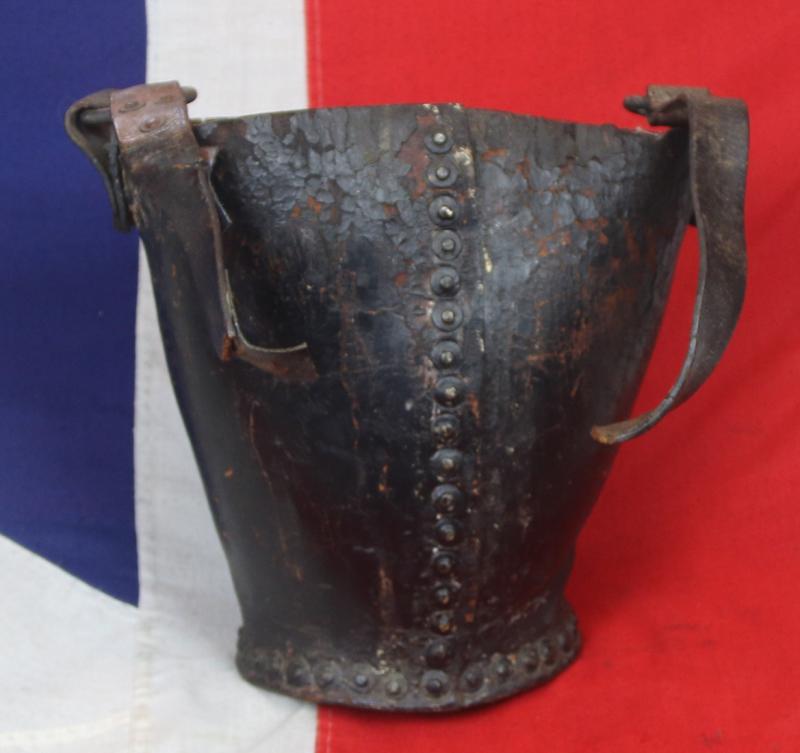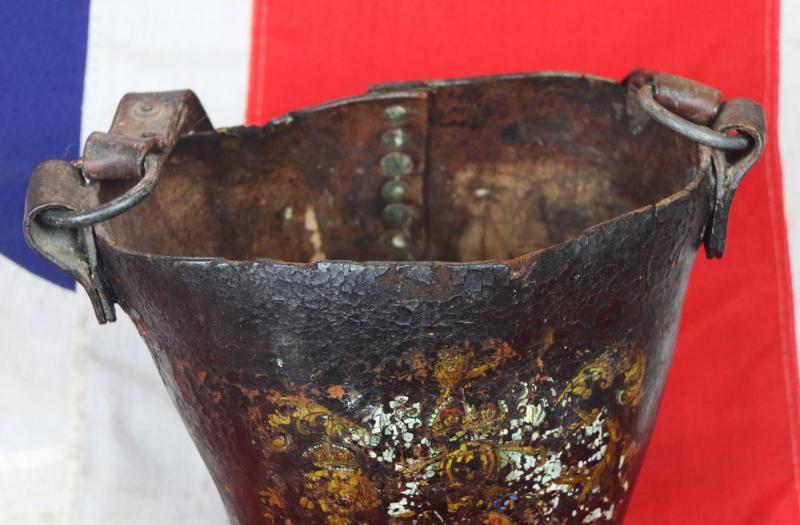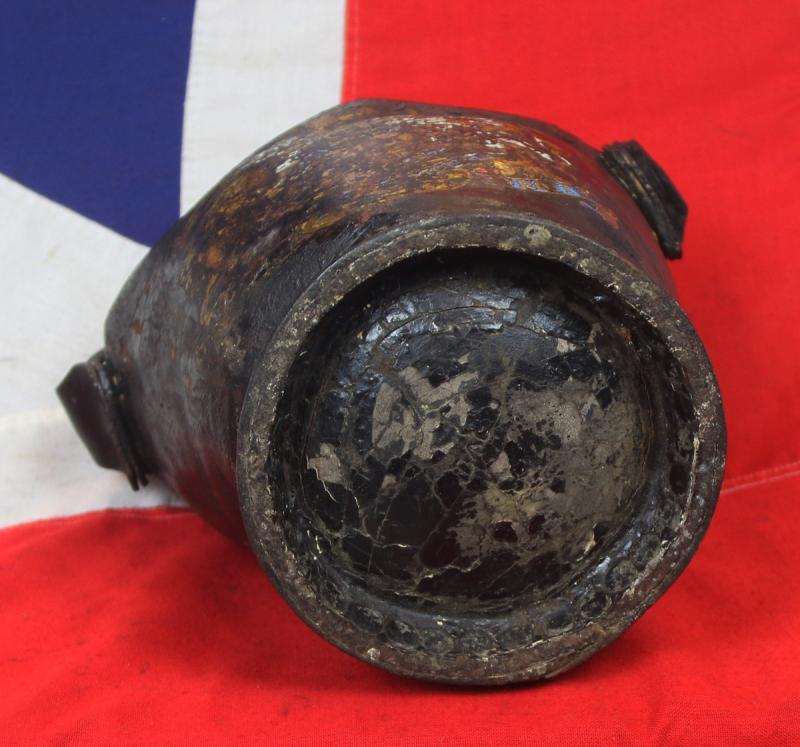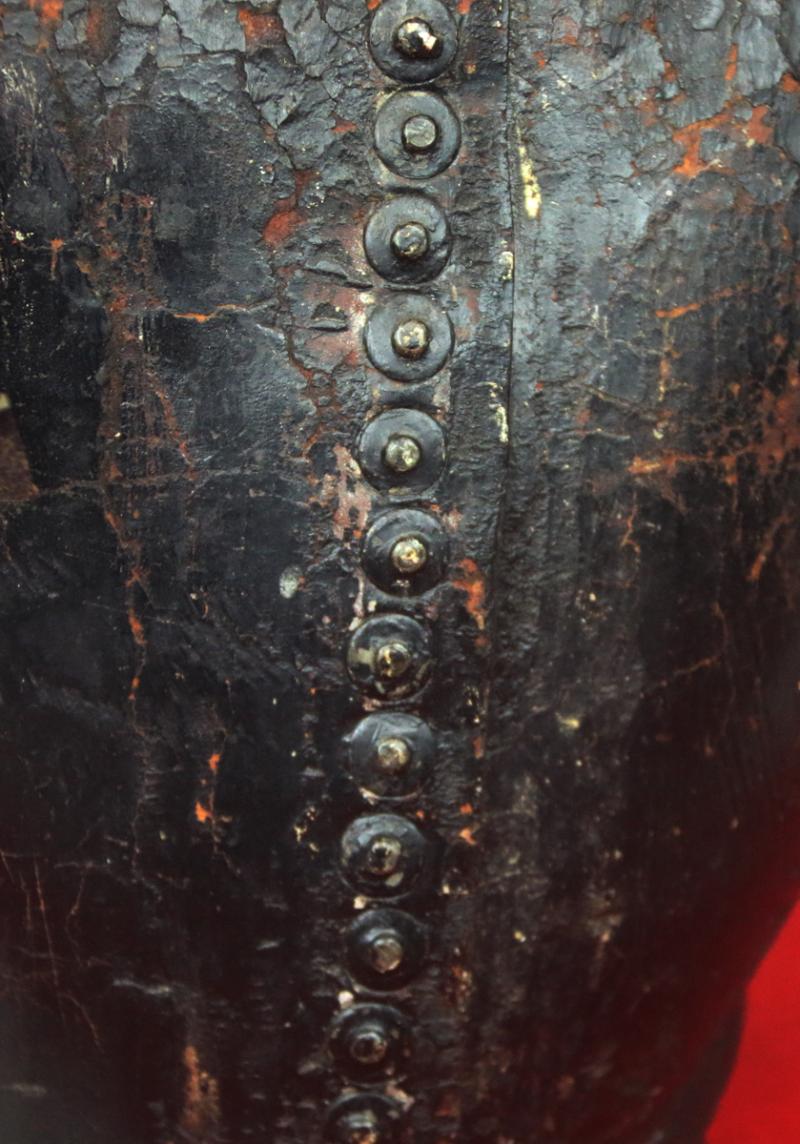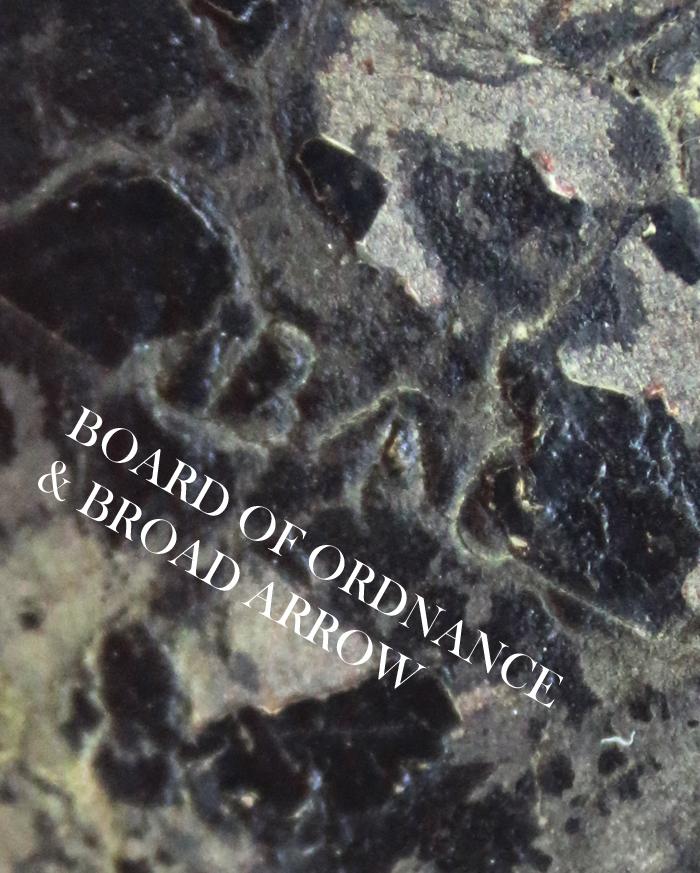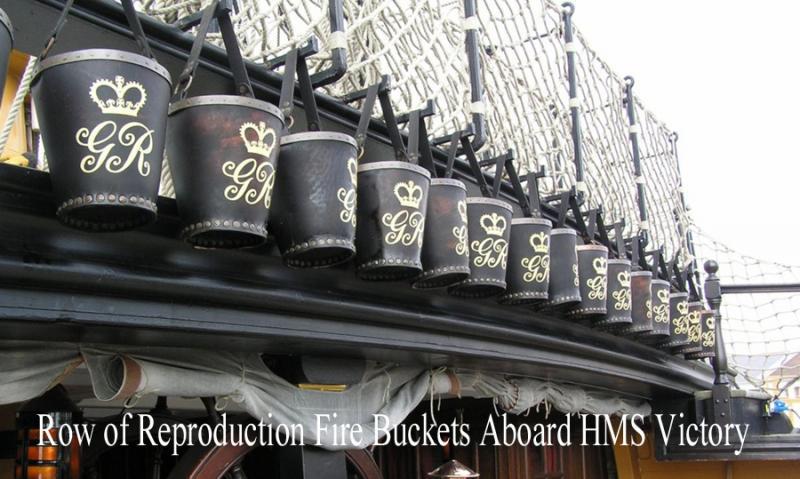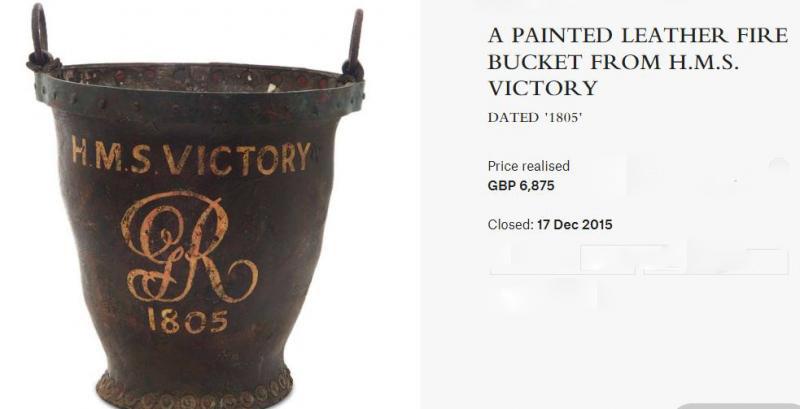A King George IIIrd Royal Naval Fire Bucket Issued by the Board of Ordnance Circa 1790's. As Used on HMS Victory and The British Ship's-of-the-Line
Hardened leather with all riveted seams in excellent condition, and part leather handle. Bears the remainder of an applied royal crest. Broad arrow & Board of Ordnance stamp to the base. Fire aboard a wooden ship was a constant peril, from such as burning powder shot or cannon fire, or even from an enemy fire ship, and could be the destruction of a vessel and crew in a very short time, if not subdued as quickly as possible. Thus good and sturdy leather fire buckets were an essential piece of Royal Naval equipment aboard every vessel. We show a row of Royal Naval issue fire buckets {reproductions} aboard Nelson's flagship, HMS Victory, now in permanent dock at Portsmouth. It is still the flagship of the Royal Navy in honour of Nelsons famous victory at Trafalgar. Fire buckets have been popular with collectors and owners of period homes for a very long time, but especially the board of ordnance issue examples for naval warships. They represent a time long before most towns had established and well-equipped fire departments ready to respond at a moment’s notice to a house or shop fire, when people relied on their neighbours to come to their aid. The risk for catastrophe from fire was great. A single stand-alone house could be consumed in minutes. In towns, fire in densely populated neighbourhoods could quickly result in the destruction of dozens of buildings.
Between 1630 and 1700 Boston experienced at least six major fires that destroyed well over 200 buildings. Most fire buckets were likely purchased from merchant craftsmen who specialised in leather goods, or wholesalers who imported wares from England. The earliest reference for the sale of fire buckets in Boston comes from a 1743 newspaper where an advertisement from an unnamed merchant simply states, “A Parcel of Choice Fire Buckets to be sold.” it is very rare to find a mark or signature on a fire bucket that identifies its maker.
At Christies auction house on the 17th December 2015 a fire bucket of the same form and type, from HMS Victory, Nelson's flagship, sold for £6875. The ones currently shown in the photograph on the Victory are modern reproductions.
Leather handle split in two parts remaining
Code: 24830
750.00 GBP


